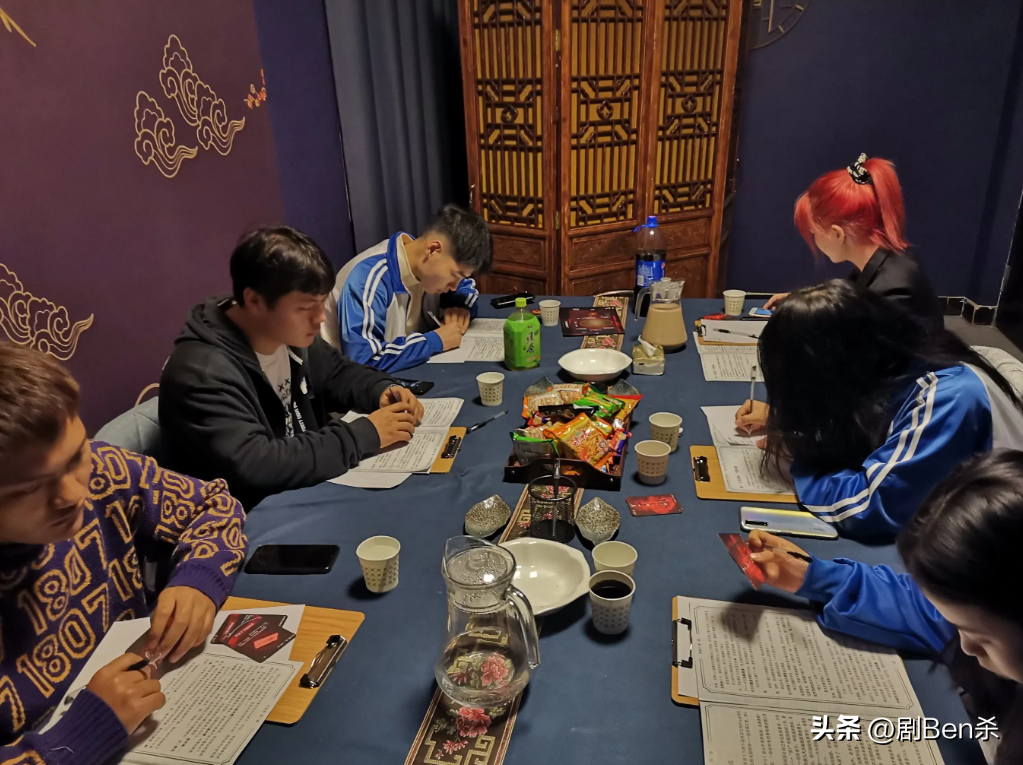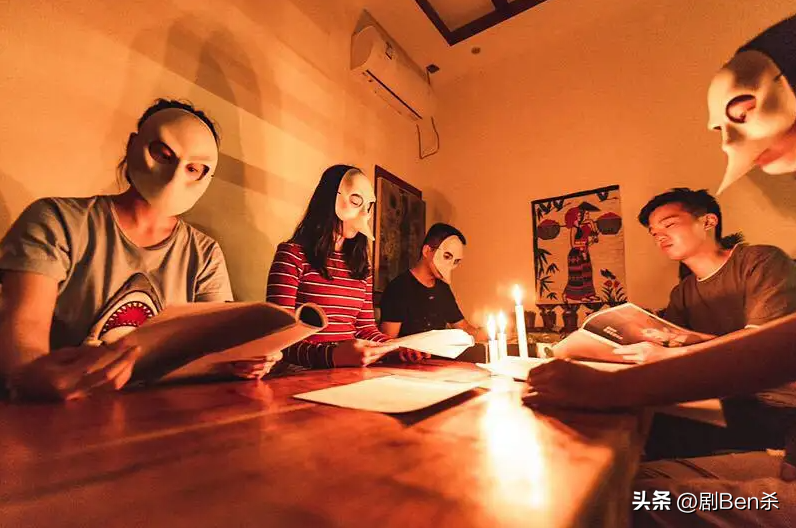Players in script-killing games often say some "slang" in the game. How can newbies avoid embarrassment? Here is an article for you, starting~ English abbreviation:
MC: Not a rapper, but a host of Script Killing.
BP: Battle points. In some scripts, battle points are required when a battle occurs, which is similar to AP. In order to limit the number of battle points.
AP: Action points, used to collect clues. It is also the "coin" in script killing.
HE, BE: happy ending and bad ending, good ending and bad ending
OB: Bystanders, in script killing, you must play the book before watching. This is the meaning of the masses.
NPC: Real-life props. Someone will play the role of NPC. Players need to find NPC to receive tasks. The most common NPC in script killing is the dead.
DM: The organizer of the game, who is also the director, referee and notary. DM is generally called the host.

Driving: Enthusiastic players are willing to dedicate themselves to serve as DM to lead new players to experience the game and invite everyone to participate. This is called driving.
Overturn: There are two explanations. The first is that the murderer was discovered, and the second is that the script did not kill enough people to form a plot.
Immortal Cultivation Vehicle: Stay up late to kill the script
Health Car: Morning Script Killing Game
Jumping out of the car: Dove in the script and kill the game

This script requires DM: The DM’s control and interpretation have a great impact on the script experience. It requires an excellent DM to have a good script experience.
Talking personally: Using factors other than the game to vouch for yourself in the game and making others believe what you say, such as "If I lie, I will jump off the building", which will greatly damage the gaming experience of other players.
Jail: Players are not interested in the script, and the experience is too long or too boring, like being in jail.
1=Worldwide: There is a player who wants to fight this script and waits for other players to get on the bus. Similarly, there are 4=2, 5=1, etc.
Three Knives and Two Poisons: Everyone had a hand on the deceased.
Rhythm: Generally, this function is used by players with strong logic or strong provocation, allowing everyone to follow his rhythm to promote the progress of the game.
Hang up: Players do not concentrate on playing the game, but do other things, such as playing on mobile phones, being in a daze, sleeping, etc.
Mutual proof: Two or more people prove to each other that there was no time when the crime was committed.
Real hammer: directly identify the murderer through a certain clue.
Timeline: What did everyone do at each time period when the murder occurred.
Searching for evidence: The process of obtaining clues, usually distributed by the DM or going to other rooms to search for clues.
Table flipping: A player stops playing halfway through the game due to a bad experience.
Xiu Xian: I am still writing books well into the early hours of the morning.
Self-destruction: Directly exposing oneself as the murderer, or revealing things that the character in the script does not want others to know.
Private chat: Players find other players to exchange information privately, usually in groups of two or three.
Public chat: Everyone openly discusses the plot together.
Overturn: The murderer self-destructs or the script experience is so poor that the game cannot be continued.
Jumping out of the car: Friends have something to do and don’t come temporarily or they leave midway through the game.
Carpool: Not all players know each other when playing the scenario.
Review: The DM restores the story and answers players’ questions.

Luohan Game: All male players.
Fairy Game: All female players.
Queen's Game: One woman and many men.
Emperor Bureau: One man and many women.
DM: Open book host.
NPC: non-player characters that need to be added to the script and actors who interact with players.
OB position: Bystander, only watching or lightly participating.
Anti-push position: Many clues will point to TA, an interference item for pushing, and a scapegoat.
C-position role: The player with the best experience, or the player with the most information.
Marginal character: No interaction, the story has little to do with him.
God's perspective: A character who knows all the plot, there are no secrets in his eyes.
Sky-Eye Players: Players who have already played this script or know the plot, and want to play it again to satisfy certain psychological needs.
Jungler: Players who like carpooling
Drama-savvy players: I like to work on my acting skills, and I have a lot of fun playing with this kind of players.
Pineapple Head: Only focuses on the core plot of reasoning, and has little emotional impact on the plot.
Faucet: Players who are easily immersed in the plot, players who are emotionally inclined will cry.
LPZ: An old liar who talks a lot but acts like he is real.
Screaming Chicken: A player who is easily frightened and screams when playing horror.
Bulldozer: A master of reasoning, a player who can quickly deduce answers when playing hard-core scripts.
Swing position: There is no clear camp position in the camp book, and you can freely join other role players with fixed camps.
Review: Summary means that after playing a game, the MC will sort out the ins and outs of the whole game for the players.
Soft logic: Without deducing actual evidence, the murderer’s logic can only be determined based on the motive and timeline of the murder.
Mutual evidence: When two or more people are together at the time of the crime, they can prove to each other that there was no time when the crime was committed.
Cross-dressing: men pretending to be women, women pretending to be men,